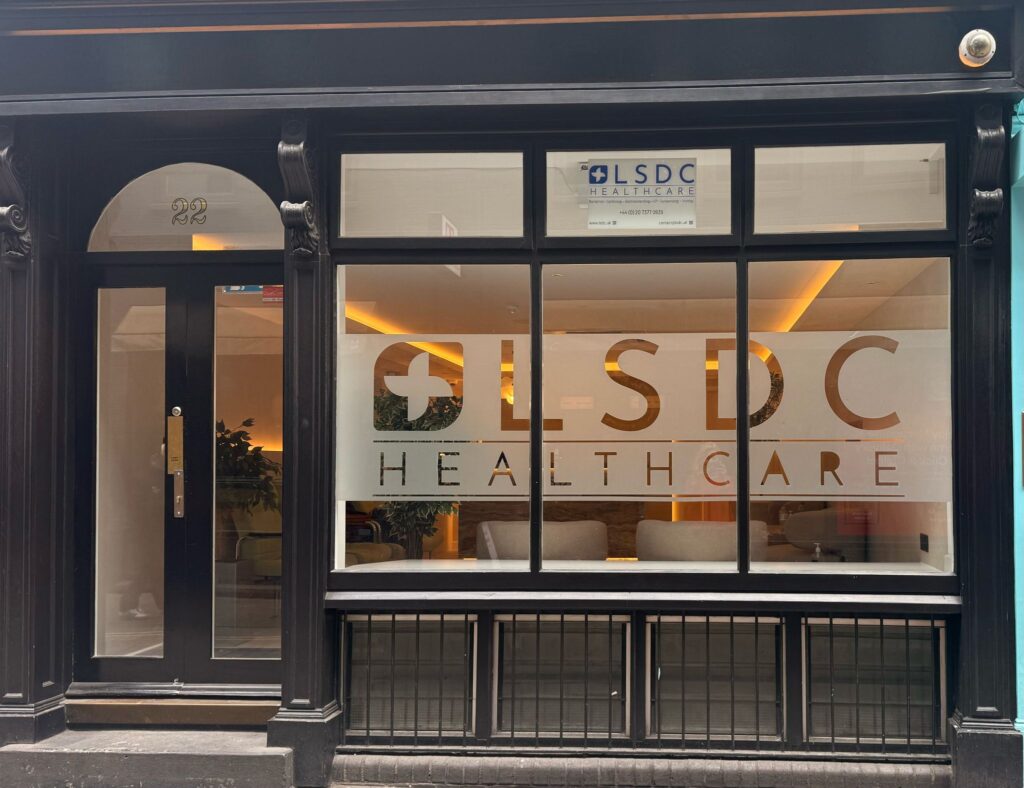Private Barrett’s Oesophagus Management in Central London
At LSDC Healthcare, we provide expert private Barrett’s oesophagus management and surveillance in Central London.
Our clinic, located just two minutes from Liverpool Street Station, offers consultant-led monitoring programmes, advanced endoscopic imaging, and minimally invasive therapies to reduce the risk of progression to oesophageal cancer.
What Is Barrett’s Oesophagus?
Barrett’s oesophagus is a condition where the cells lining the lower oesophagus change, usually as a result of long-term acid reflux (GORD).
Although Barrett’s itself is not cancer, it can increase the risk of developing oesophageal adenocarcinoma.
With regular surveillance gastroscopies, Barrett’s can be monitored closely, and early changes can be treated before they progress.
Who Needs Barrett’s Surveillance?
Your consultant may recommend regular Barrett’s monitoring if you have:
A confirmed diagnosis of Barrett’s oesophagus
A history of chronic reflux or heartburn
Difficulty swallowing (dysphagia)
Family history of oesophageal cancer
Prior findings of precancerous (dysplastic) cells
Surveillance intervals depend on the length of Barrett’s segment and the degree of cellular changes seen on biopsy.
Barrett’s Oesophagus Management at LSDC
At LSDC, our Barrett’s management programme includes:
Scheduled surveillance gastroscopies in line with national guidelines
High-definition and enhanced imaging techniques for early detection
Targeted biopsies for histology (including dysplasia assessment)
Advanced minimally invasive therapies for precancerous changes:
Radiofrequency Ablation (RFA)
Endoscopic Mucosal Resection (EMR)
Endoscopic Submucosal Dissection (ESD) in selected cases
Lifestyle and reflux management support with dietitians and consultants
Rapid results turnaround with consultant-led review
Why Early Detection Matters
Patients with Barrett’s who undergo regular surveillance and treatment have a significantly reduced risk of developing oesophageal cancer.
At LSDC, our approach ensures:
-
Timely detection of dysplasia (precancerous change)
-
Less invasive therapies rather than major surgery
-
Personalised surveillance intervals based on your risk profile
Consultant Expertise at LSDC Healthcare
Our gastroenterology consultants are experienced in:
Barrett’s surveillance protocols
Therapeutic endoscopy for dysplasia
Multidisciplinary care — working alongside oncologists, surgeons, and pathologists
Lead consultant Dr Ahmed Albusoda has extensive expertise in complex endoscopy and reflux disorders, making LSDC a trusted choice for Barrett’s care.
Why Choose LSDC for Barrett’s Oesophagus Management?
Consultant-led care — every procedure performed by senior gastroenterologists
State-of-the-art imaging — enhanced visualisation for early detection
Advanced therapy options — ablation and resection available in-house or via partner hospitals
Multidisciplinary support — integrated pathways for complex cases
Central London convenience — discreet clinic near Liverpool Street Station
Insurance recognised — Bupa, AXA, Aviva, Cigna, Vitality, Healix
Private Fees and Insurance
We offer transparent self‑pay packages for private gastroscopy, colonoscopy and advanced endoscopic procedures, and we’re recognised by Bupa, AXA, Aviva, Cigna, Healix and other major insurers.
Our team will assist with pre‑authorisation and claims to make the process straightforward.
LSDC Healthcare
A couple of minutes outside Liverpool St Station, this excellent facility is conveniently located for Medical consultations in London.
This facility is open during the evenings making it an excellent choice for busy professionals.

Book A Consultation
If you’ve been advised to undergo a gastroscopy, colonoscopy, or would like a second opinion, we invite you to book a consultation with one of our specialists.
Our team will review your symptoms, medical history, and determine the most appropriate diagnostic pathway for you.
Frequently Asked Questions — Barrett’s Oesophagus
What is Barrett’s oesophagus?
Barrett’s oesophagus is a condition where the normal lining of the lower oesophagus changes due to long-term acid reflux, increasing the risk of oesophageal cancer.
Does Barrett’s always lead to cancer?
No. Most patients with Barrett’s will never develop cancer, but surveillance is essential because a small percentage can progress to precancerous changes or oesophageal cancer.
How often should I have a gastroscopy?
Surveillance intervals depend on the length of Barrett’s and whether precancerous cells are present. Your consultant will advise on the best schedule, typically every 2–5 years, or more frequently if dysplasia is found.
What treatments are available for Barrett’s?
Treatment options include radiofrequency ablation (RFA), endoscopic mucosal resection (EMR), and endoscopic submucosal dissection (ESD) for selected cases with high-grade dysplasia.
Is Barrett’s management covered by insurance?
Yes. LSDC is recognised by Bupa, AXA, Aviva, Cigna, Vitality, Healix, and most major insurers. Our admin team will help arrange pre-authorisation.
Can lifestyle changes help with Barrett’s?
Yes. Managing reflux with medication, dietary changes, weight management, and avoiding smoking or alcohol can help reduce ongoing risk and discomfort.
